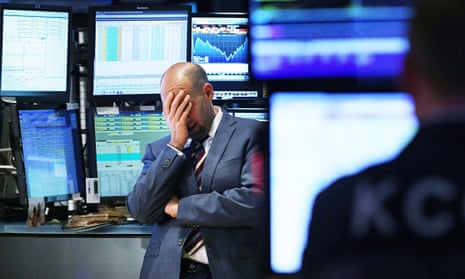It’s a bit rich for the US authorities to seek extradition of Navinder Singh Sarao on charges of “wire fraud” (intentionally depriving another person of property or honest services via mail or wire communication) – a federal crime since 1872 – when they themselves set up the environment in which Sarao was allegedly making bets in the unregulated market (Bail set at £5m for suburban UK trader accused over Wall Street’s ‘flash crash’, 23 April).
The US Commodity Futures Modernisation Act of 2000 enshrined in law the right of traders in “derivatives” to act without oversight from the regulators (the Commodity Futures Trading Commission, which oversees trades in commodity futures and company shares).
Another US law, the Futures Trading Practices Act of 1992, also prevents trade in derivatives from being regulated as gambling (although some people think that’s all it is). The market is effectively unregulated and Sarao apparently used that to his advantage.
So who were the “persons” allegedly deprived of property in this case? Not widows, orphans or pensioners, but other market players, such as the mutual fund you mention, which apparently put a sell order for $4.1bn into the market during the “flash crash”. Why is that fund not also being charged with wire fraud when it too was simply playing the market, just like Sarao?
Either this kind of trading is right and proper, in which case Sarao is unfairly accused, or it is wrong, in which case it should be properly regulated. In the same issue you also report that Deutsche Bank has set aside €1.5bn for a possible record fine for rigging Libor, the interbank interest rate.
Will any political party step up and campaign seriously for tighter financial regulation?
Richard Cooper
Chichester, West Sussex
